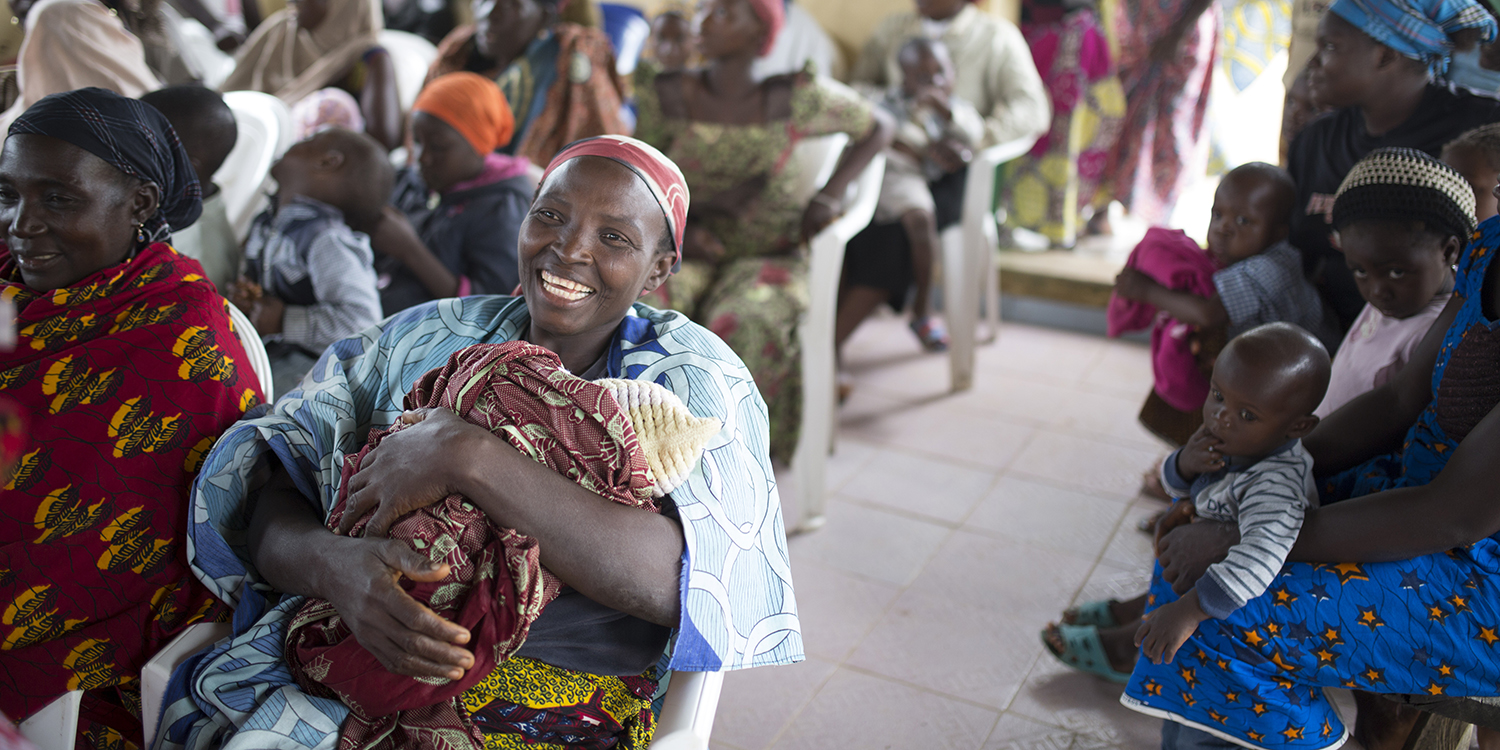Measuring Impact

.
The GFF is committed to transparency and accountability. Results measurement is driven by a logic model that serves as the framework for systematically measuring and reporting on how GFF-supported investments under country-led investment cases contribute to better health outcomes for women, children, and adolescents.
The model i) reports on national results to show how country-led programs and strategies supported by the GFF partnership are collectively delivering better health outcomes; and ii) monitors how GFF-specific investments link to the larger country-led impact to show how the GFF is delivering on its promise.

A platform for accessing GFF partner country data to monitor progress and inform policy decisions for the health and nutrition of women, children, and adolescents.
Progress against the GFF logic model
With support from the GFF partnership, countries have prioritized actions to build health systems that benefit women, children and adolescents:
- Thirty one out of the 36 GFF partner countries have completed their investment case
- More countries are scaling up investments to strengthen primary care and service delivery
- More countries are promoting sustainable, equitable financing
- More countries are on track to achieve improved RMNCAH-N outcomes
Since they began their partnership with the GFF, countries have reached:

Country-led results
GFF partner countries and communities are driving change across health systems to unlock additional financing, innovation, and policies that improve access to quality health services and bridge equity gaps.
Countries are reforming their health financing around primary care and service delivery:
- Central African Republic improved frontline spending and donor alignment and achieved a 5 percent increase in resource allocation for primary health care.
- Cote d’Ivoire reformed health financing which helped expand insurance coverage by 89 percent targeting the poorest households. This contributed to increasing the number of women seeking pregnancy care
Investments in primary health care are delivering quality services to communities:
- In Vietnam, training health workers contributed to an increase in assisted deliveries and the number of women screened for cervical cancer.
- Mozambique innovated supply chain networks to improve the availability of drugs and essential health commodities to the last mile and strengthen primary health care.
Countries are making progress in sexual and reproductive health and rights:
- In Uganda, the number of women and adolescents visiting health care facilities for short-term and long-acting methods of contraception has surged between FY 2018/19 and FY 2020/21, representing a 166 percent and 118 percent increase respectively. At the national level, couple years of protection (CYP)—the estimated protection provided by contraceptive methods during a one-year period—have more than doubled from 2.2 million in 2015 to 4.7 million in 2021.
- Girls in Niger can now attend school health clubs to receive reproductive health info, discuss the risks of adolescent pregnancy as a result of legislative reforms. Read blog
Countries are advancing better nutrition outcomes:
- Guatemala’s expansion of the cash transfer program for nutrition contributed to more children being monitored for growth.
- In Rwanda, significantly more children under seven accessed early childhood development services compared 2021 (from 49 to 62%); more children under six received Vitamin A supplementation every six months (83% in 2021 from 35% in 2019); more children under five were screened for malnutrition by community health workers (84% in 2021 from 70% in 2017).